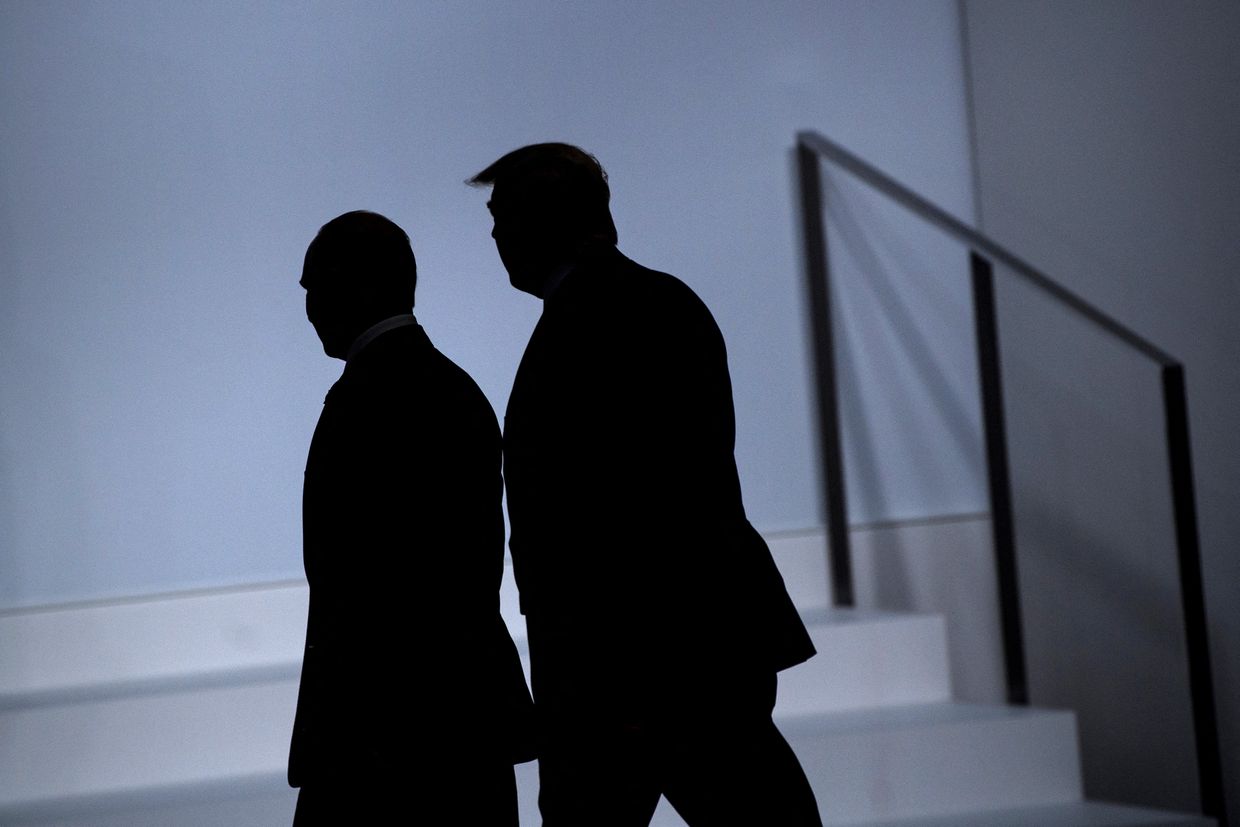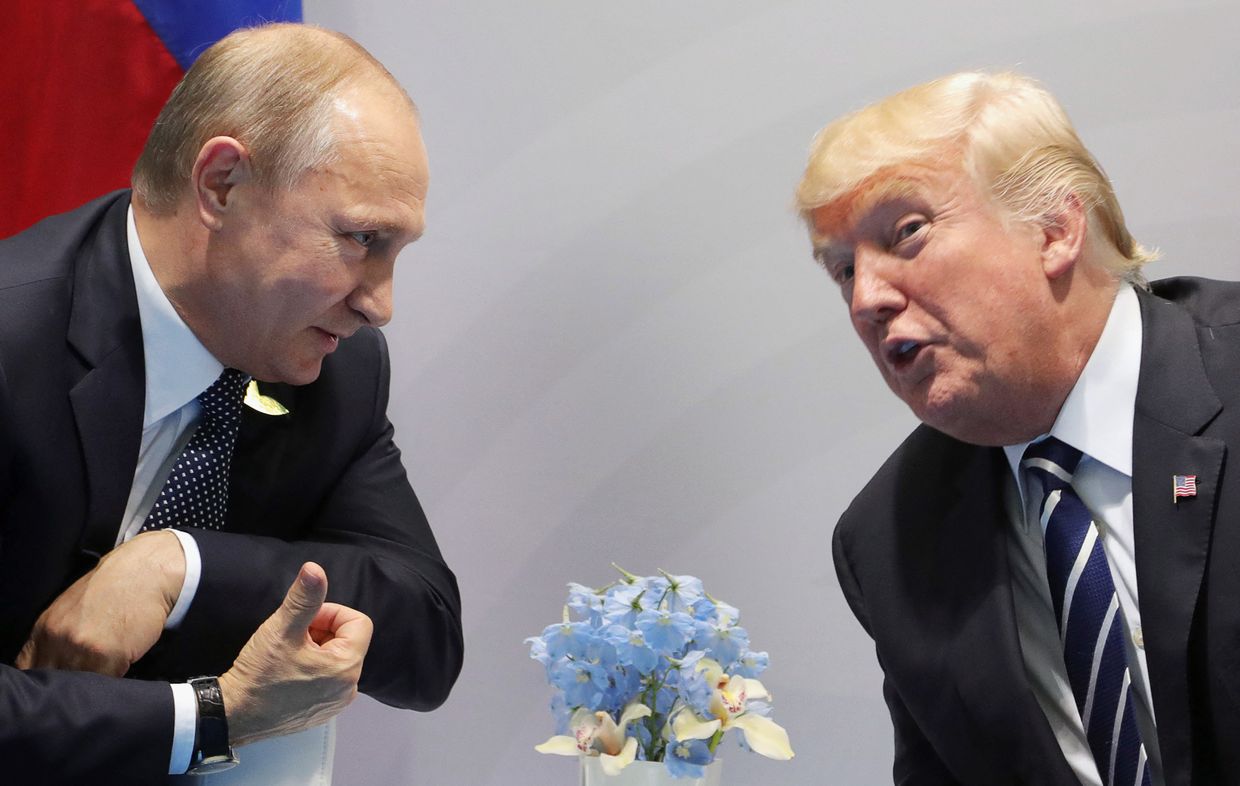US-Russia talks are 'the last warning for Europe,' Gabrielius Landsbergis says

Lithuania's ex-Foreign Minister Gabrielius Landsbergis talking to the Kyiv Independent on the sidelines of the Munich Security Conference in Munich, Germany, on Feb. 14, 2025. (Olena Zashko/The Kyiv Independent)
Editor's note: The interview has been edited for clarity.
Storm clouds are intensifying in Europe as Ukraine approaches the fourth year of the full-scale war with Russia.
Initial hopes that U.S. President Donald Trump's new administration might adopt the "peace through strength" approach towards Moscow are beginning to unravel in light of recent statements from Washington.
Both Trump and his Defense Secretary Pete Hegseth made it clear they do not see Ukraine joining NATO, a step envisioned by Kyiv as not only the best possible security guarantee but its key geopolitical goal.
Speaking in Brussels at a Ramstein-format summit, the Pentagon chief also claimed that restoring Ukraine's pre-2014 borders was "unrealistic" and signaled the U.S.'s attention is no longer focused on the European continent.
Adding to tensions, U.S. Vice President JD Vance stunned those watching on Feb. 14 when his speech at the Munich Security Conference turned into a searing attack on Europe's ideals and a call to embrace far-right political parties.
Gabrielius Landsbergis, Lithuania's foreign minister between 2020 and 2024, says that if there ever was the "last warning" for Europe, this was it.
The Kyiv Independent sat down with Landsbergis on the sidelines of the Munich Security Conference on Feb. 14, where the growing divergence between the U.S. and the EU on NATO and Ukraine was at the center of the discussions.
Lithuania's former chief diplomat, a long-time advocate for more decisive support for Ukraine, laid out how Europe can still turn the tide and help Kyiv achieve a just and lasting peace.
Because if Europe doesn't wake up now, he says, "we might have to declare it dead."
The Kyiv Independent: What's your reaction to recent statements by top U.S. officials — before negotiations even began — that Ukraine might not be able to join NATO, that it will not be able to return to pre-2014 borders?
Gabrielius Landsbergis: It's giving all the leverage to (Russian President Vladimir) Putin and basically declaring that everything he wanted to achieve with his war against Ukraine, he might get it.
So it's understandable that for many Ukrainians and for many of those who support Ukraine, it sounds like a betrayal. But some of the statements were contradicted just recently again, so it is indeed very confusing.
I just hope that Putin is as confused as we are.
The Kyiv Independent: U.S. President Donald Trump and Putin are planning to meet. What can European countries do to make sure that Europe and Ukraine are not left out of the negotiation process?
Gabrielius Landsbergis: I think you see the way it might happen, and there's very little that we can do. Putin can meet Trump. They will meet, they will talk, they will call it peace negotiations, and they will declare something. But it doesn't necessarily need to change the reality on the ground.
From Putin's perspective, it definitely won't. I don't think he will stop for any reason. He will put the blame on Ukrainians, on Europeans.
Trump might do the same thing. So I think we have to prepare for what's after. And in this, my only hope is the now absolute and horrible cliche, that Europe wakes up.
Because if it doesn't wake up, we might have to declare it dead. If there's ever a last warning, it is now. And there are things that Europe can do, honestly. We pride ourselves on a huge economy, 450 million people. (Russia's economy) is just the size of Spain's.

We have to put something on the table. We have the ability to support Ukraine militarily. We can integrate Ukraine into the European Union. This is one of the instruments that Europe used in the past.
And if we take it seriously, we can do that very, very fast. I'm not talking about cutting corners, but basically just guiding (Ukraine) through the process so that it is clear that if Russia decides to attack again, it will attack a country of the European Union.
That changes the perception. We can arm Ukraine, we can arm ourselves, we can do many things.
The Kyiv Independent: You think that membership in the EU can work as some sort of security guarantee for Ukraine?
Gabrielius Landsbergis: Yes, indeed. Or at least (it can work as) deterrence. (French) President (Emmanuel) Macron mentioned a while ago that if Russian troops advance, they might encounter French troops in Odesa.
Many in Europe freaked out, saying "it's not needed yet," or "maybe we can talk about this later in a different format." I think this is the time to talk about this. Let's put European troops in Ukraine and promise to fight alongside Ukrainians in case of another attack.
This will bring us respect, not just from Ukraine but also from countries like the United States, China, and others.

The Kyiv Independent: A major topic of the Munich Security Conference last year was "Trump-proofing" Western aid for Ukraine, that is, ensuring support for Ukraine will continue even if Donald Trump is elected. Do you think these efforts were successful? Did they achieve something?
Gabrielius Landsbergis: No, I don't think so. It's like all the exercises before Covid hit, exercises of how we vaccinate thousands of people and how we do this and how we do that, how we contain the pandemic. And then, when the real pandemic hit, nobody was prepared. We had to invent all the rules and start from scratch.
So I think it was the same with Russia's full-scale invasion. The Americans declared about half a year before (February 2022) that the Russians were going to attack. And they said "let's prepare."
We started preparing. When the Russians attacked, we said, "Oh, okay, so this is what it means." It's quite a different reality.
I'm not surprised. This is probably the feature of democracy, the way that it functions. We're very short-term. In most cases, we look at the next election rather than at the next decade.
So when somebody says that there is trouble ahead, we're not that worried about it because we have more troubles right now that we need to take care of. Even in my country, when we have discussions about what we should do if Trump is elected, if he decides to rethink his stance on Europe and other things, it's a very difficult conversation. And I don't think that we have prepared.


The Kyiv Independent: Why does the West keep making these mistakes when we look at the past three years of the full-scale invasion? Why hasn't it learned its lesson? And do you think it's too late to turn the ship around?
Gabrielius Landsbergis: I don't know. Inside Europe, the problem is that we see problems very differently. There are countries close to Ukraine and Russia that do understand what's happening. We call them the eastern flank countries. You can add Northern Europe to this group.
And then you have a lot of other countries for whom to imagine a Russian attack on Brussels… I mean, this will never happen, right?
That's why you have to argue whether you still need 2% of GDP for defense when Poland is spending 4% and Lithuania is spending 3.7%. Estonia, almost 4%. And then you have countries far away from Russia who say that this will never happen, they will never attack us. And this is the division.
What we need is leadership. We need somebody who would be willing to risk paying the political price for the solutions needed for Europe.
So it's not a bureaucrat who doesn't really care, but the person who says: "Okay, if we don't do this, we are doomed. And if we do this, yes, we might also lose, and I will lose personally, but this is the price I'm willing to pay."
Is it not too late? I don't think it's too late. When Covid hit, Europe decided to borrow 750 billion euros ($780 billion). Sounds like a lot of money. But after a session of just eight hours, the German parliament took a decision to borrow 250 billion euros ($260 billion).
Yes, it's one of the biggest economies in the world. But imagine if it's doable for Germany, what can Europe do in eight hours?
The Kyiv Independent: For a long time, Ukraine has said membership in NATO is the only effective security guarantee. But this seems now increasingly unlikely in the light of recent statements from the U.S. What would you consider the most feasible and effective security guarantee for Ukraine?
Gabrielius Landsbergis: I still insist that NATO is the most effective (security guarantee) because you have the United States in it. You have a clear commitment to fight alongside (allies) because it's at the core of the (NATO founding agreement) Washington Treaty.
And even in theory, NATO works as a deterrent, because there's enough ambiguity in the way that NATO is structured, that you don't want to test it. The Russians might one day be brave enough to test it, but not yet. So if NATO guarantees would be provided now, I think that Ukraine would be safer immediately.
If that is completely off the table, we need U.S. security guarantees that would be second-tier. Basically, the U.S. would fight alongside its allies, who would be willing to join the group and Ukraine in case there's another attack.
If that doesn't work, well, then it's the Europeans. The question is whether that would be possible. If that doesn't happen, then we're in a very dangerous scenario where Ukraine is actually left alone to fight off anything that might come its way. This would be very similar to the Minsk agreements.
A ceasefire, no security guarantees, and just a preparation for the next phase.
Note from the author:
Hi, this is Martin Fornusek. I hope you enjoyed this interview.
Our team strives to bring you the most interesting discussions with politicians, experts, and other important voices with insights on Ukraine's history, politics, and its resistance against Russian aggression.
We wouldn't be able to do so without the support of readers like you. To help us continue in this work, please consider becoming a member of the Kyiv Independent's community.
Thank you very much.












